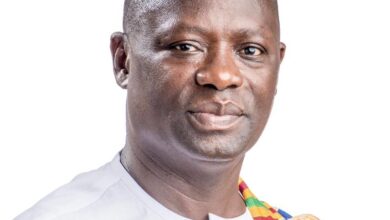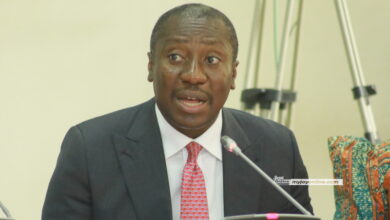Joseph Cudjoe writes: Declare a state of emergency in Ghana’s small-scale mining sector now


Ghana’s small-scale mining sector — once a source of livelihoods and local pride — has spiraled into a full-blown national crisis.
Across our mining districts, law enforcement officers from the Police, Military, and Environmental Protection Agency (EPA) are being attacked by armed galamsey operators. Our rivers run brown poisoned with mercury, cyanide and arsenic compounds.
Our farmlands have similarly become poisoned moonscapes of destruction. The time for half-measures is over. The Government of Ghana must declare a State of Emergency in the small-scale mining sector — now.
State Of Emergency Only Solution. A state of emergency in this call is to say that the state of small scale mining is in crises now and requires extraordinary measures by government to deal with it.
I note that a state of emergency is a legal condition which would permit the government to suspend relevant laws and regulations of this sub-sector.
In this case, when there is a military action that may result in unexpected accidents, the world and human rights CSOs cannot quote those laws against government action.
Restricted State Of Emergency
In order not to disrupt the modest economic gains being made by the country, the government must consider a restricted state of emergency in terms of sector and time.
By this, I mean the declaration must be restricted to the small-scale mining sub-sector and limited to, say, three months, with the period extended if the sector players do not organise themselves into full compliance within that period. Medium to large-scale mining firms should be allowed to operate to take advantage of the current high gold prices on the world market.
Ghana Under Siege
What we are witnessing is not merely illegal mining. It is the rise of organized criminality — armed groups defending environmental destruction for profit.
The attacks on law enforcement mirror the early stages of drug cartel violence in Latin America, where small, heavily armed groups gradually overwhelmed state institutions. When a nation’s police and military cannot safely enforce its environmental and mining laws, the very foundation of sovereignty is under threat. This is no longer an issue of environmental degradation alone; it has become a national security emergency
The Constitutional Mandate
Ghana’s 1992 Constitution gives clear guidance. Under Article 31(9), a state of emergency may be declared “when any part of Ghana is in a state of war, or where there is an occurrence which threatens the life of the nation and is of such a nature or magnitude as to require extraordinary measures to deal with it.”
Can anyone doubt that the poisoning of our rivers — Ankobra, Pra, Offin, Birim, etc — threatens the life of the nation? Can anyone question that armed attacks on policemen, soldiers and EPA officers constitute occurrences requiring extraordinary measures?
The Constitution empowers the President, under Article 31(1), to declare such a state of emergency subject to parliamentary approval within seventy-two hours. It is time to invoke that power — not against the whole nation, but specifically in the small-scale mining sub-sector where the crisis rages.
Why a Targeted Emergency Is Needed
Declaring a sector-specific state of emergency would:
- Empower the security agencies with clear authority to disarm, disband, and prosecute illegal mining groups.
- Allow the suspension of small-scale licenses in affected mining areas while legitimate operators are re-verified.
- Enable rapid deployment of resources for enforcing environmental recovery and community protection.
- Restore control before criminal syndicates become entrenched.
- enable medium to to large scale mining firms and government continue to benefit from the current record high gold prices to keep the dollar price low.
- make the emergency narrow and focused to make it a scalpel, not a hammer to the entire mining sector.
Short-Term Economic Gains Versus Long Term Damage to Economy
Some may be tempted to argue that galamsey activities inject dollars into the local economy or provide jobs for thousands of unemployed youths. But government must not be blinded by the false economics of destruction — the illusion that a few ounces of illicit gold and short-term employment can justify poisoning rivers, destroying cocoa farms, and sickening communities to jeopardize sustainability of the gains.
The supposed economic “gain” from galamsey is fleeting and narrow, enriching only a few powerful actors, while the economics of health, clean water, and long-term environmental sustainability tell a very different story.
When rivers die, communities fall ill, agriculture collapses, and water treatment costs skyrocket, the nation pays far more than it ever earns from illegal mining. The wealth of a few cannot outweigh the long term health of the economy and many.
An Emergency Call to Leadership
This is not a partisan appeal. It is a call to conscience and courage. Ghana stands at a tipping point: we either act decisively now or watch criminal networks, armed with assault rifles and mercury, erode the authority of the state.
Declaring a state of emergency now in the small-scale mining sector would send one clear message: the Republic of Ghana will not surrender her rivers, forests, and law enforcement officers to lawlessness.
DISCLAIMER: The Views, Comments, Opinions, Contributions and Statements made by Readers and Contributors on this platform do not necessarily represent the views or policy of Multimedia Group Limited.
DISCLAIMER: The Views, Comments, Opinions, Contributions and Statements made by Readers and Contributors on this platform do not necessarily represent the views or policy of Multimedia Group Limited.
Source link





